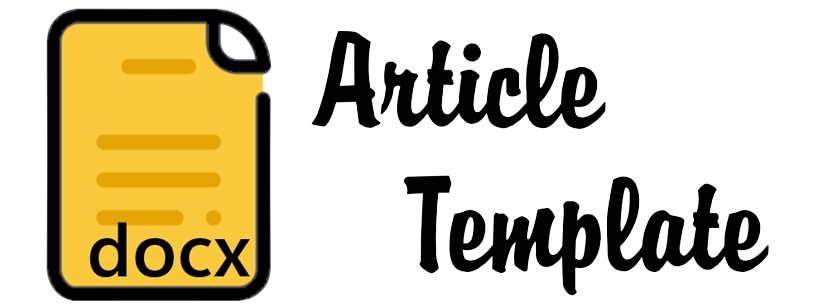Implementation of the Learning Community Program Using the Context, Input, Process, and Product Model to Improve Student Learning Outcomes
DOI:
https://doi.org/10.55909/jpbs.v4i5.884Keywords:
learning community program, teacher competence-performance, student learning outcomesAbstract
The Learning Community Program is part of the Merdeka Curriculum strategy that aims to improve teacher competency and performance through collaboration, reflection, and continuous professional development. The Learning Community Program at SMAN 1 Teluk Bintan is named Kombel Keren (Collaborative, Educational, Responsive, and Energetic). This study aims to: 1) explore the implementation of the Learning Community Program using a descriptive evaluative approach with the CIPP (Context, Input, Process, Product) model at SMAN 1 Teluk Bintan; 2) the magnitude of the increase in teacher competency and performance; 3) the magnitude of the increase in student learning outcomes. This library research uses data from the 2020/2021 and 2024/2025 academic years. The subjects of this study were teachers of SMAN 1 Teluk Bintan. Data on the Learning Community Program were collected using documentation techniques, observation guidelines, and portfolios. Data on teacher competency and performance were collected using test instruments and documentation techniques. Data on learning outcomes were collected using documentation techniques. Implementation data were analyzed qualitatively and thematically. Data on improving teacher competency and performance as well as data on improving student learning outcomes were analyzed using descriptive statistics, namely the mean. The results of the study: 1) the implementation of the Learning Community Program used a descriptive evaluative approach with the CIPP (Context, Input, Process, Product) model based on in-house training and workshops categorized as very active; 2) the magnitude of the score for improving teacher competency and performance was between 10-20; 3) the magnitude of the increase in student learning outcomes was between 0.51 to 0.97.
References
Arikunto, S. (2019). Prosedur Penelitian: Suatu Pendekatan Praktik (Revisi). Rineka Cipta.
Arsyad, A. (2013). Media Pembelajaran. Rajawali Pers.
Aryanto, S., Hartati, T., Maftuh, B., & Darmawan, D. (2022). Sastra Anak Berbasis Ecoprenurership sebagai Muatan Pembelajaran Literasi Finansial di Sekolah Dasar. Jurnal Cakrawala Pendas, 8(3), 722–737. https://doi.org/10.31949/jcp.v8i3.2569
Delfiana. (2024). Pembelajaran Keterampilan Menulis Paragraf Prosedur Topik Perkalian Menggunakan Teknik Scaffolding dan Teknik Tugas Menyalin. Jurnal Pembelajaran Bahasa Dan Sastra, 3(4), 451–464. https://doi.org/10.55909/jpbs.v3i4.610
Durga, V. S. S., & Rao, C. S. (2018). Developing Students’ Writing Skills in English-A Process Approach. Journal for Research Scholars and Professionals of English Language Teaching, 6(2), 1–5.
Evers, J., & Kneyber, R. (Eds.). (2016). Flip the System: Changing Education from the Ground Up. Routledge
Fraenkel, J. R., Wallen, N. E., & Hyun, H. H. (2012). How to Design and Evaluate Research in Education. Eighth Edition New York: McGraw-Hill.
Hatch, E. & Farhady, H. (1982). Reseacrh Design and Statistics. Rowley, Massachusetts, USA: Newbury House Publishers.
Hidayat, M.T. (2018). Pengembangan Bahan Ajar Menulis Pantun Menggunakan Media Mencari Pasangan Kartu pada Siswa Kelas VII SMP Negeri 12 Langsa. Jurnal Samudra Bahasa, Volume 1, No. 2, Tahun 2018, 64-73.
Indah, O. D., Suhardi, S., & Ramadhana, M. A. (2021). Pendampingan dan Praktik Pembuatan Media Pembelajaran bagi Mahasiswa PGSD Universitas Cokroaminoti Palopo. Jurnal Abdimas Indonesia, 1(1), 12-17. https://doi.org/10.53769/jai.v1i1.45
Kraft, M. A., Blazar, D., & Hogan, D. (2018). The Effect of Teacher Coaching on Instruction and Achievement: A Meta-Analysis of the causal evidence. Review of Educational Research, 88(4), 547-588. https://doi.org/10.3102/0034654318759268
Kusmiati, A., & Mariah, E. S. (2024). Keterampilan Menemukan Ide Pokok Teks Laporan dalam Pembelajaran Menggunakan Pendekatan Konstruktivisme melalui Teknik Scaffolding. Jurnal Pembelajaran Bahasa dan Sastra, 3(1), 117–128. https://doi.org/10.55909/jpbs.v3i1.567
Lieberman, A., Campbell, C., & Yashkina, A. (2017). Teacher Learning and Leadership: Of, By, and For Teachers. England: Routledge
Mahamod, Z. (2014). Inovasi P & P dalam Pendidikan Bahasa Melayu. Tanjong Malim, Perak, Malaysia: Universiti Pendidikan Sultan Idris.
Mubarik, M., Hadjar, I., Meinarni, W., & Tawil, A. M. (2024). Pemanfaatan Teknologi Artificial Intelligence Dalam Proses Pembelajaran. Jurnal Abdimas Indonesia, 4(3), 1099-1108. https://doi.org/10.53769/jai.v4i3.939
Nurdin, L., Alim, J. A. ., Hermita, N. ., Marhadi, H., & Putra, Z. H. (2025). Peran Komunitas Belajar dalam Meningkatkan Profesionalisme dan Kualitas Pembelajaran Guru. Jurnal Kiprah Pendidikan, 4(3), 335–340. https://doi.org/10.33578/kpd.v4i3.p335-340
Paida, A., & Sahriani, S. (2024). Peningkatan Kualitas Pembelajaran Melalui Pemberdayaan Komunitas Belajar. Jurnal Abdimas Indonesia, 4(3), 711-717. https://doi.org/10.53769/jai.v4i3.877
Pratiwi, S. A., Mayanti, R., Arifin, S. A. N., Sabrina, V. J., & Khaliza, D. W. (2025). Pelatihan Pembuatan Media Pembelajaran Interaktif Berbasis WEB Menggunakan Canva dan Google Sites untuk Komunitas Belajar Guru Matematika. Jurnal Abdimas Indonesia, 5(3), 1464-1473. https://doi.org/10.34697/jai.v5i3.1965
Ranem, R. (2018). Pengembangan Bahan Ajar Materi Debat dengan Metode Role Playing pada Siswa Kelas X Sekolah Menengah Atas. Diglosia: Jurnal Kajian Bahasa, Sastra, dan Pengajarannya, 1(2), 65-74. Diperoleh dari http://diglosiaunmul.com/index.php/diglosia/article/view/10
Razak, A. (2016). Meneguhkan Jalan Menuju Surga: Bahan Ajar Kemampuan Membaca Berpendekatan Konstruktivisme untuk Kelas VII SMP/MTs. Pekanbaru: Yayasan Pendidikan Raja Zulkarnain.
Razak, A. (2018). Membaca Pemahaman: Teori dan Aplikasi Pengajaran, Edisi VII Cetakan VIII. Pekanbaru: Ababil Press.
Razak, A. (2020). Pendekatan Konstruktivisme dalam Pembelajaran Membaca Pemahaman. Pekanbaru: UR Press.
Razak, A., & Elmustian, E. (2024). Penerapan Teknik Tugas Menyalin dan Teknik Tes dalam Pembelajaran Online Keterampilan Memperkuat Rima Pantun. Jurnal Pembelajaran Bahasa dan Sastra, Volume 3, Nomor 6, November 2024, 761-770. DOI: https://doi.org/10.55909/jpbs.v3i6.644
Riskawati, R., Said, S., Herman, N. M., Nurhasmi, N., & Sanusi, D. K. (2025). Transformasi Kompetensi Pedagogik Calon Guru Fisika melalui Pelatihan Pembuatan Media Pembelajaran Berbasis Coding. Jurnal Abdimas Indonesia, 5(2), 869-877. https://doi.org/10.34697/jai.v5i2.1583
Sumantri, A., Anam, K., Harsanti, N., Rahmawati, L. S., & Alamsyah, R. (2025). Pelatihan Pembuatan Media Pembelajaran Komunitas Belajar Guru SMK Analis Kesehatan Tunas Medika Berbasis Website: Pelatihan Pembuatan Media Pembelajaran. Jurnal Abdimas Indonesia, 5(3), 2128-2137. https://doi.org/10.34697/jai.v5i3.2001
Suryowati, E., & Aini, N. (2024). Pelatihan Pembuatan Media Pembelajaran dengan Wordwall di SDN Jombatan Kesamben. Jurnal Abdimas Indonesia, 4(2), 590-596. https://doi.org/10.53769/jai.v4i2.767
Timperley, H. S. (2017). Teacher Professional Learning and Development. The International Academy of Education (IAE), Educational Practices Series, 18
Yulaeha, S., & Handayani, D. F. (2024). The Skills in Finding Factual Paragraph Ideas Using Copying Assignment Techniques on Simple Teaching Material. DISCUSSANT: Journal of Language and Literature Learning, 2(3), 173–180. https://doi.org/10.55909/dj3l.v2i3.36
Downloads
Published
How to Cite
Issue
Section
License
Copyright (c) 2025 Iman Sabarullah, Encik Abdulhajar, Zaitun

This work is licensed under a Creative Commons Attribution-NonCommercial-ShareAlike 4.0 International License.







